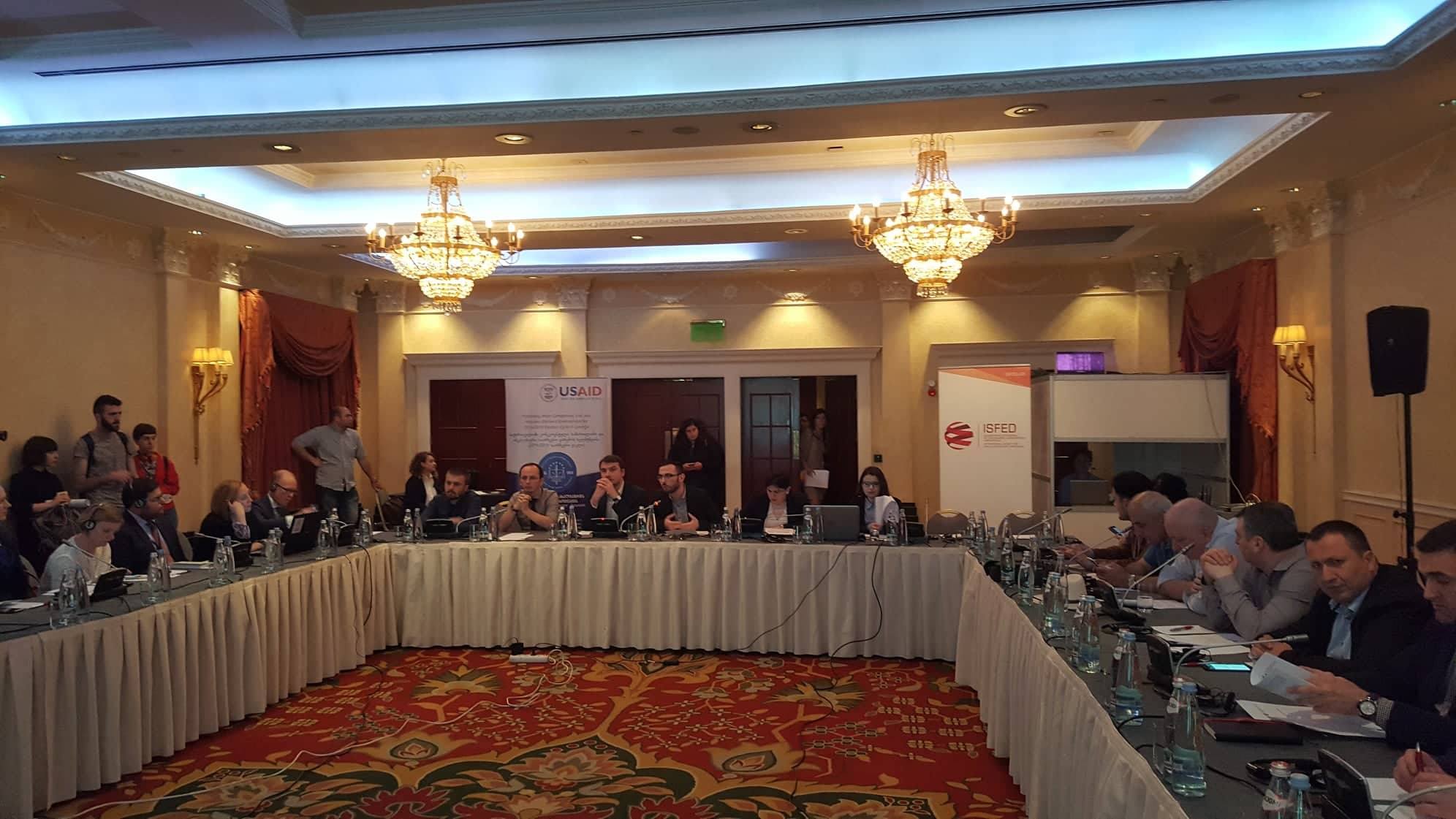


On June 12, the International Society for Fair elections and Democracy, together with the Georgian Young Lawyers’ Association and Transparency International – Georgia presented legislative recommendations for improving the electoral environment. Two separate packages of recommendations concern pending amendments to the Election Code and the Law of Georgia on Political Associations of Citizens, and aim to eliminate the gaps identified through monitoring of electoral processes and in practice. Recommendations of three organizations that monitor electoral processes concern composition of the electoral administration and applicable criteria, regulations on canvassing and use of administrative resources, electoral disputes, as well as the mobile ballot box list.
With regard to party funding, the organizations demand abolition of the possibility to receive an additional funding of GEL 300,000 for creating a faction, which has recently created many opportunities to manipulate state funding. In addition, the recommendations state that in order to avoid artificial creation of electoral blocs intended to receive funding, advertising time or other benefits, electoral blocs participating in elections should receive benefits on equal basis with political parties that participate in elections individually. An electoral subject should technically become the object of all types of public, direct or indirect funding. Whether an electoral subject is a party or an electoral bloc, as an electoral subject it should be entitled to an equal portion of funding.
With regard to composition of the electoral administration, the recommendations state that the rule on appointment of members by parties in the electoral administration should be amended to ensure that six electoral subjects with best results in the last general elections held under the proportional system are entitled to such right. In addition, each electoral subject should appoint one representative. Additional criteria should be introduced for selection of electoral commission members – for instance, individuals who served as a member or a candidate of a political party over the last two years and those who served as a party-appointed member of an electoral commission during one of the last two elections should be ineligible for appointment in the electoral administration. To attract highly-qualified personnel in PECs, term of effect of precinct commissions should be reduced and certification of PEC members should be encouraged, including by providing higher salaries.
Some recommendations concern canvassing regulations. It is very important that the Election Code provides a more detailed definition of canvassing stating that canvassing also includes dissemination of political calls using one’s personal social media account. The definition of canvassing should also include attending a campaign event, which will resolve the ambiguity that exists with regard to the issue. To avoid illegal canvassing by charitable organizations, it should be established that for purposes of the Election Code, an organization is considered charitable whether or not it is registered with the tax agency as a charitable organization. In an event of participation of an alien in campaigning, the person that organized participation of an alien in canvassing should be subjected to liability.
To minimize risks of using administrative resources, the legislation should draw a clear line between party-related activities and public service. Participation of employees of budget organizations in canvassing during working hours should be prohibited by law, and deputy ministers and governors should not have the right to participate in campaigning without any restrictions.
Significant portion of the recommendations deals with summarizing of election results and electoral disputes and problems that exist in practice in these areas. The recommendations state that the law should define cases when an electoral commission is required to review electoral documentation and election results, in particular, when in the summary protocol prepared by a PEC, number of votes received by subjects, number of voters or invalidated ballots have been rewritten, or the sum of votes received by subjects and invalidated ballots exceeds the number of voters that participated in elections. Considering the frequent practice of amending protocols, not only commission members but also all individuals present at the polling station when the summary protocol was prepared should be summoned to attend the meeting for drawing up amendment protocols the day after Polling Day. It is important to elaborate simplified forms of complaints for appealing to the courts on electoral disputes, as there are strict timeframes for electoral disputes.
During the press-conference held at Tbilisi Marriott, in addition to NGOs, opinions on pending amendments to the Election Code and bills initiated in Parliament in this regard were also presented by representatives of the ruling party and the opposition.
Recommendations:
ჯ. კახიძის #15, თბილისი, საქართველო, 0102 ; ტელ: (995 32) 95 23 53; ფაქსი: (995 32) 92 32 11; ელ-ფოსტა: gyla@gyla.ge; www.gyla.ge
15, J. Kakhidze str. 0102, Tbilisi, Georgia. Tel: (995 32) 95 23 53; Fax: (995 32) 92 32 11; E-mail: gyla@gyla.ge; www.gyla.ge